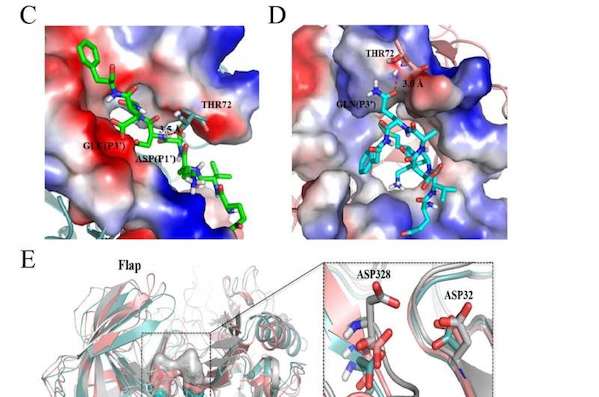Researchers discover novel ‘Shanghai APP’ mutation in late-onset Alzheimer’s disease
May 16, 2023
Source: drugdu
 303
303
Alzheimer's disease (AD) is a progressive neurodegenerative disorder affecting tens of millions of people worldwide, and it is the most common cause of dementia. Early-onset AD is typically associated with mutations in the genes APP, PSEN1, and PSEN2, leading to a more aggressive form of the disease with atypical symptoms. In contrast, the newly discovered "Shanghai APP" mutation has been linked to LOAD, which affects a larger population of AD patients.
In a study published in Genes & Diseases, researchers from Ruijin Hospital, affiliated to Shanghai Jiao Tong University School of Medicine and other three teams detected the Shanghai APP mutation in a Chinese patient who developed memory decline in his mid-70s. Neuroimaging techniques confirmed the presence of widespread amyloid β deposition, a key hallmark of AD.
Using molecular dynamics simulation and in vitro experiments, the team found that the E674Q mutation led to increased processing of APP and production of amyloid β, a toxic protein linked to AD. Additionally, the biochemical aggregation experiments suggested that the E674Q peptide exhibited higher aggregation than the wild-type peptide, especially the formation of filaments that hinged several fibrils.
To further investigate the mutation's effects in vivo, the researchers introduced the E674Q mutant APP gene into the hippocampi of two-month-old mice using adeno-associated virus (AAV) gene transfer. The study revealed that the E674Q mutation resulted in impaired learning behavior and increased pathological burden in the mouse model, demonstrating its pathogenic role in AD.
The E674Q substitution exhibited a strong amyloidogenic effect, and, to the researchers' knowledge, it is the only known pathogenic mutation within the amyloid processing sequence causing LOAD. This finding is significant, as it may open up new avenues for understanding the development of LOAD and lead to more effective treatments for patients suffering from this form of Alzheimer's disease.
The discovery of the novel Shanghai APP mutation provides a unique opportunity to delve deeper into the molecular mechanisms underlying LOAD. Further research into the effects of the E674Q mutation is essential to explore the potential development of targeted therapies or interventions that may slow or halt the progression of AD.
By understanding how this specific mutation contributes to the onset and progression of LOAD, scientists may be able to devise new strategies for preventing or treating this devastating disease, ultimately improving the quality of life for tens of millions of patients and their families.
Provided by Chongqing Medical University
By editorRead more on
- The first subject has been dosed in the Phase I clinical trial of Yuandong Bio’s EP-0210 monoclonal antibody injection. February 10, 2026
- Clinical trial of recombinant herpes zoster ZFA01 adjuvant vaccine (CHO cells) approved February 10, 2026
- Heyu Pharmaceuticals’ FGFR4 inhibitor ipagoglottinib has received Fast Track designation from the FDA for the treatment of advanced HCC patients with FGF19 overexpression who have been treated with ICIs and mTKIs. February 10, 2026
- Sanofi’s “Rilzabrutinib” has been recognized as a Breakthrough Therapy in the United States and an Orphan Drug in Japan, and has applied for marketing approval in China. February 10, 2026
- Domestically developed blockbuster ADC approved for new indication February 10, 2026
your submission has already been received.
OK
Subscribe
Please enter a valid Email address!
Submit
The most relevant industry news & insight will be sent to you every two weeks.




